What are Rice Mills
Rice mills are essential facilities in the agricultural sector specifically designed for processing paddy, which is raw, unhusked rice, into consumable white rice. The transformation of paddy into rice is a complex process that involves several stages such as cleaning, hulling, milling, and polishing. These mills cater to a variety of clients including large-scale farming operations, smallholders, food shops, rice processing plants, and resellers who deal in bulk grains.
The fundamental operation of a rice mill involves a series of mechanical processes. Initially, the paddy is cleaned to remove any impurities. Then it enters the hulling phase where the husk (the protective outer covering of the grain) is removed, revealing the rough rice or paddy rice. The next step is milling, where the bran layer is stripped away from the rough rice by abrasive or friction action to give white rice. Finally, the white rice may be polished to enhance its texture and appearance. Some sophisticated mills may also sort and grade the rice based on size and quality.
The process is carried out by various types of machinery which are selected based on the scale of operation and specific requirements of the product. Each phase in the milling process is crucial as it affects the yield, quality, and texture of the final product. The ultimate goal for any mill operator is to produce high-quality white rice with minimal breakage, ensuring maximum profitability and customer satisfaction.
Types of Rice Mills
Different types of rice mills are available to accommodate varying needs and capacities. Here's an overview:
Compact Rice Mill: Compact mills are small-scale milling machines often used for home use or by small businesses. They combine several processing stages into one unit and are known for their convenience and affordability.
Automatic Rice Mill: These mills are equipped with automated features that streamline the milling process. They boast high productivity levels and often include advanced technology such as computerized monitoring systems.
Mini Rice Mill: Mini mills are designed for smaller outputs and are ideal for local farmers or small enterprises. They occupy less space and require a lower initial investment compared to larger milling machinery.
Integrated Rice Mill: An integrated mill combines several milling processes into one system. Typically used in larger operations, these mills can handle significant quantities with greater efficiency.
Portable Rice Mill: Portable mills can be moved easily from one location to another. This flexibility makes them suitable for use in different settings or when servicing remote farming communities.
Each type has common use cases related to their capacity and convenience features. For example, compact and mini rice mills might be found at a local food shop or on a small farm whereas automatic and integrated mills would be more common at large manufacturing plants or dedicated rice processing facilities.
How to choose Rice Mills
Choosing the right rice mill involves considering various factors that align with your business needs. When evaluating options on Alibaba.com, consider:
Scale of Operation: Assess your daily processing needs to determine whether a compact, mini, automatic, integrated, or portable mill suits your volume requirements.
Automation Level: Consider how much automation you need based on your workforce capabilities and desire for efficiency. Automatic mills can reduce labor costs but might come with a higher price tag.
Space Constraints: If space is limited, compact or mini mills could be more practical than larger setups which require more room for operation.
Budget: Determine your budget for initial investment as well as ongoing maintenance costs. While some mills may have a lower purchase price, they could incur higher maintenance expenses over time.
Quality Assurance: Look for suppliers that provide machinery test reports to ensure that the equipment meets certain standards.
After-sales Support: Choose suppliers offering comprehensive after-sales service such as online support or engineers available to service machinery overseas to ensure continued operational efficiency.
By carefully considering these aspects in relation to your business's specific needs, you can make an informed decision that balances cost with functionality and long-term reliability.
Best Rice Mills on Alibaba.com
Alibaba.com stands out as a global marketplace connecting businesses with an extensive range of commercial products including sophisticated rice mills tailored for diverse agricultural needs. From compact models suitable for small-scale operations to high-capacity automatic machines designed for large production facilities, Alibaba.com features an array of options that cater to businesses at any stage of growth.
Suppliers on Alibaba.com hail from prominent rice-producing regions around the world ensuring that buyers have access to machinery that is optimized for their local crops and conditions. Whether you operate in Asia, Africa, or America, there's equipment available that respects local service locations and applicable industries' standards.
Alibaba.com further distinguishes itself by providing Trade Assurance—a service designed to build confidence between buyers and suppliers by protecting payments until delivery completion. With this assurance in place, businesses can invest in their milling operations with reduced risk and peace of mind. Additionally, Alibaba's platform simplifies international transactions by offering user-friendly mobile purchasing options and multilingual communication support—embodying their goal "to make it easy to do business anywhere."
Common FAQs for Rice Mills
What is the difference between a compact rice mill and an automatic rice mill?
Compact rice mills are designed for smaller-scale operations and tend to be more affordable and space-saving. In contrast, automatic rice mills offer higher levels of automation, increasing efficiency and productivity for larger scale operations.
How do I determine the right size rice mill for my business?
Assess your daily processing requirements, available space, and budget. Choose a rice mill that can handle your production needs without excessive unused capacity, which could result in unnecessary expense.
Can portable rice mills be used for commercial purposes?
Yes, portable rice mills are suitable for commercial purposes, especially for businesses that need to process rice in multiple locations or have limited space.
What after-sales services should I look for when purchasing a rice mill?
Look for suppliers that offer comprehensive after-sales services such as online support, video technical support, and engineers available to service machinery overseas to ensure continuous operation and efficiency.
Are there rice mills available that cater to specific types of rice?
Yes, there are rice mills designed to process various types of rice, including long-grain, short-grain, and fragrant varieties. It's important to select a machine that is suitable for the type of rice you plan to process.
How does the material of the rice mill affect its durability?
Rice mills constructed with high-grade materials like stainless steel or certain alloys tend to offer greater durability and longevity compared to those made with less durable materials.
What are key selling points I should consider when choosing a rice mill?
Key selling points include multifunctional capabilities, high productivity, competitive pricing, low maintenance costs, and features like energy saving or high safety levels.
Is it important to consider local service locations when selecting a rice mill?
Yes, considering local service locations is important as it ensures you have access to support and parts within your region which can aid in quicker service and maintenance.
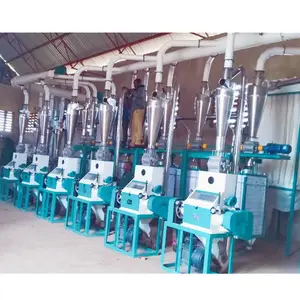
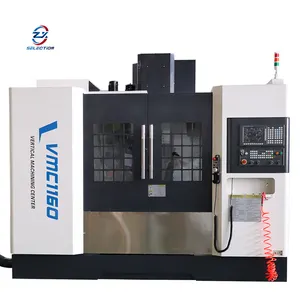



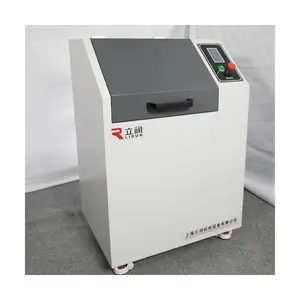






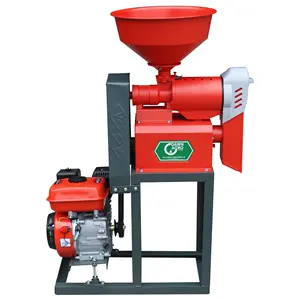



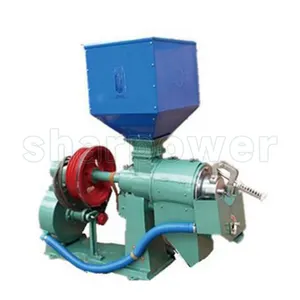


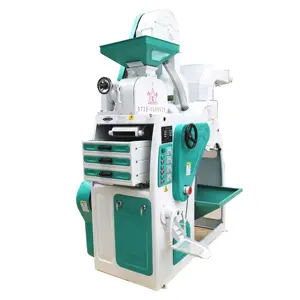

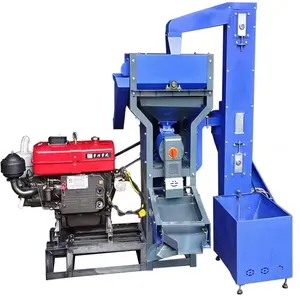




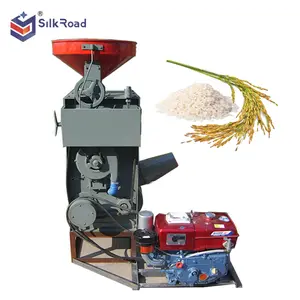



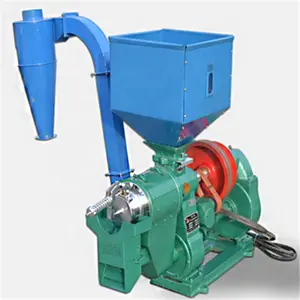


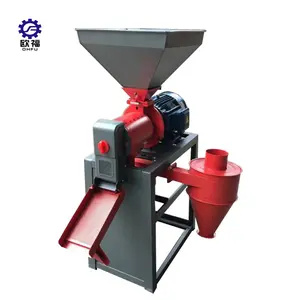



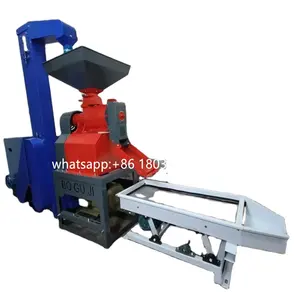

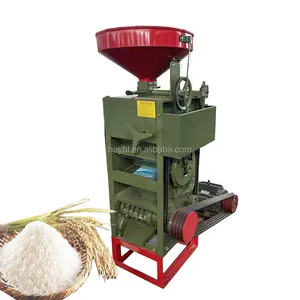


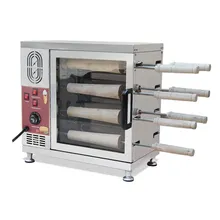

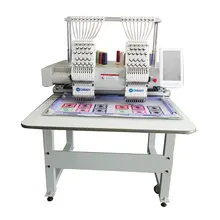






























 浙公网安备 33010002000092号
浙公网安备 33010002000092号 浙B2-20120091-4
浙B2-20120091-4